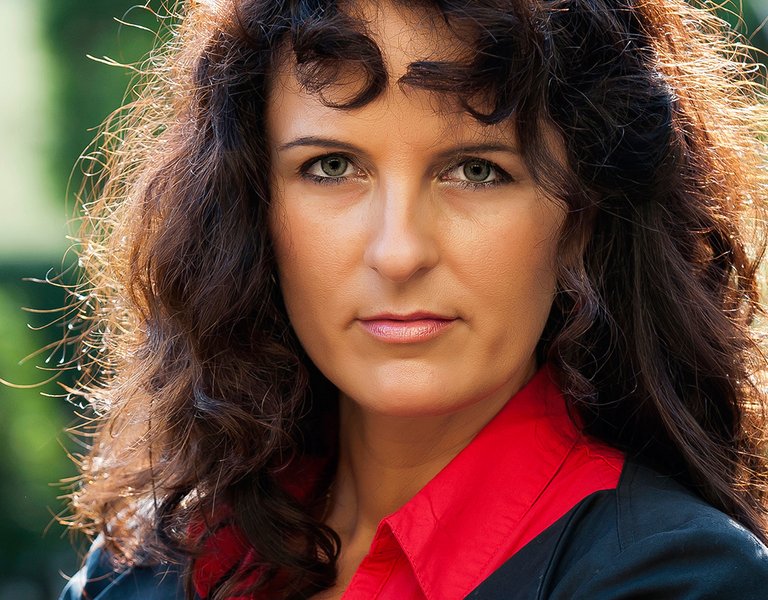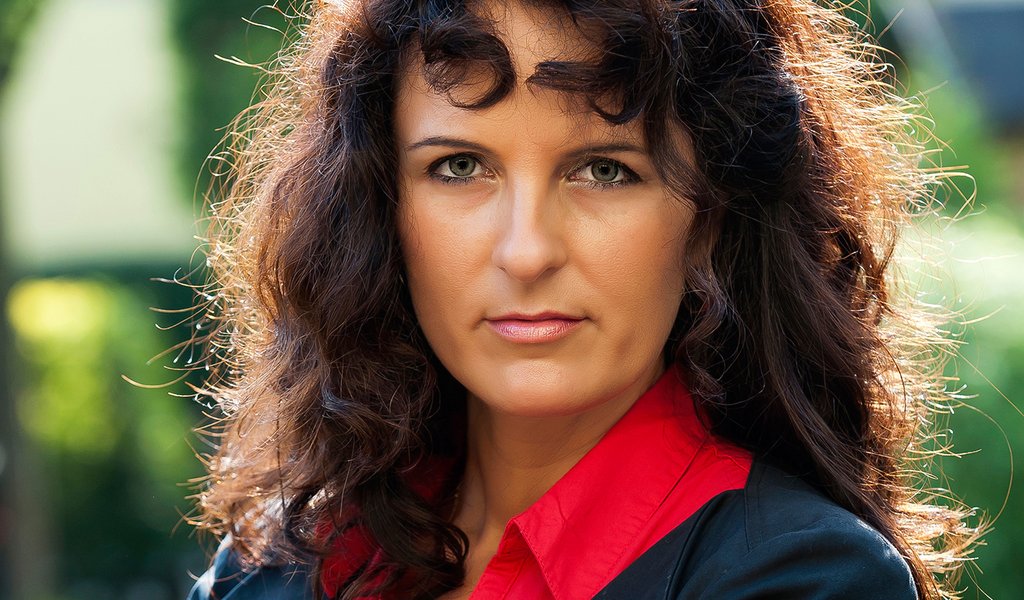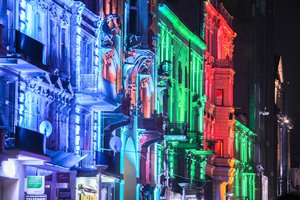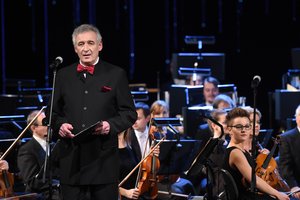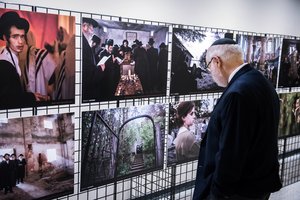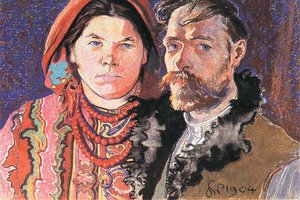I grew into writing
‘I’d love to call myself ‘a European’, it sounds so dignified in the books. I’ve never seen the point of hiding my origin – I’ve never had a problem with it. I believe that when you take your fate into your own hands, where you come from is less important,’ says Magdalena Parys, laureate of this year’s European Union Prize for Literature, in her interview with Polska.pl.
Parys’ book, ‘Magician’ (Magik), the first volume of the ‘Bulgarian Trilogy’, was listed among the twelve titles awarded with the prestigious EU Prize for Literature (EUPL). Established in 2008 by the European Parliament, the prize is intended to promote outstanding writers from all over the continent. Before Magdalena Parys, two other Polish writers received the award: Jacek Dukaj for ‘Ice’ (2009) and Piotr Paziński for ‘Boarding House’ (2012).
Karolina Kowalska, Polska.pl: Since ‘Magician’ received the EU Prize for Literature, one has to order it in advance from bookstores. It is just as difficult to get hold of your previous novel, ‘Tunnel’ (Tunel). Have you noticed this sudden rise in popularity?
Magdalena Parys*: It seems to me that I gained readers after I was awarded the prize in London, but ‘Tunnel’ was reprinted a few times in 2011. It is just as difficult to get hold of a copy, now that the hardcover edition has been published. I don’t know why this is the case and why they aren’t available. It’s a good sign, though I’d prefer them to be in stock.
Both your books were written in Polish. Although you were born in Gdańsk and raised in Szczecin, you have been living in Berlin since you were 13 years old.
The fact that I wrote them in Polish is pure coincidence. If my publisher commissioned books in German, I’d have written them in German. I’m transcultural, and I write in both languages. A lot depends on the topic. When I collect materials for my books, I use German archives or articles, I take notes in that language, and then I go on to write entire passages in German. It often happens that a given excerpt sounds so much better in German than in Polish, and I translate it with an aching heart, at the final stages of the work, shortly before I send the entire book off to my editor.
You left for Germany as a thirteen-year-old girl, but you still speak fantastic Polish and you create works in this language. How did this come about?
It would surely be different if I had gone to a German-speaking family and used only that language. If that were the case then I wouldn’t have kept so many Polish phrases. But I spoke and read a lot in Polish at home. I also wrote a lot of letters to my friends in Gdańsk and Szczecin. I asked them to tell me what was on their reading list at school. And as they complained about having to read ‘Our Nag’ by Maria Konopnicka or the Trilogy by Henryk Sienkiewicz, I devoured them with great joy. I even broadened their list significantly. When I was 14, my favourite book was ‘The Polaniecki Family’ (a.k.a. ‘Children of the Soil’, ‘Rodzina Połanieckich’). As an eight-year-old, I wrote a diary, mediocre poems and horrible stories. I also cultivated my interest in Russian literature, because it seemed to me that I would be cut off from it in West Germany.
But the language of your books is alive and modern. It’s not ‘bookish’.
But to me, I speak the Polish I spoke in 1984, when I left. I sometimes say ‘we went somewhere with all the lads’, and nobody speaks like that anymore. My young cousins laugh at me all the time. To be honest, I’ve had a lot of contact with modern Polish language for the past six years, since I joined up with a Polish publisher, and I met great people working with the written word. And, there’s the Internet. I watch almost every feature programme on-line – not only Polish ones. I’m not interested in only one point of view.
My books simply cannot be superficial and devoted to one subject only, because I myself am complicated and unruly. Next to the literary value, they must have that ‘something’. I verify everything in great detail, I browse, I read, I think, and I read again. - Magdalena Parys
Your first novel was published late, after your thirtieth birthday. Why, being so strongly connected to literature, did you wait so long to publish something you wrote?
I didn’t feel ready for a long time. I thought to myself: what is the point of writing, as everything had already been written. But I continued to write my stories and my diaries anyway. I think that, intuitively, I waited until I was able to cope with what I want to say, in terms of technique, and until I have lived and learned enough to know that it is worth to write it down. I just led an intensive life. On my thirtieth birthday, the balance was as follows: I used to live in Poland, I live in Germany, I had a second husband, I had a patchwork family – three children, I moved over thirty times, I worked as a fitness instructor, I earned my living in so many different ways, I studied three study programmes for over ten years, I had fun, I cheated, I was cheated on, somebody close to me died, and so on. You know, I always, somewhere at the back of my head, remember that an 80-year-old man might read my books. Looking at it in this way, all adjectives suddenly start to seem funny, and the tearful descriptions of sunsets get deleted immediately. However, an intensive life does not guarantee success as a writer. You also need determination and an uncompromising nature.
Your books are not self-reflective, though. You are writing about your experiences through your characters. In both ‘Magician’ and ‘Tunnel’ one can see that you spent countless hours researching and collecting facts, much like a documentalist. As if straight from the previous century.
As a teenager, I read books like ‘War and Peace’ with an encyclopaedia at hand. My books simply cannot be superficial and devoted to one subject only, because I myself am complicated and unruly. Next to the literary value, they must have that ‘something’. I verify everything in great detail, I browse, I read, I think, and I read again, but I don’ write in archives or libraries. I know Berlin very well. I draw my knowledge mostly from what I see, hear, read, but in the end – I add the fiction and the story. No other literary form is interesting to me. First, I start with politics, a scandal lasting 10 pages, and the remainder, that is 600 pages of my book, comes from my imagination and fantasies. After I submit my manuscript, I always think that I could have done better. For example, if the writing goes very smoothly and well, I know that something is wrong. And I get very cautious then.
The EU Prize for Literature must have convinced you that what you do is good?
Yes. It confirmed that I had grown into writing, but tomorrow, I might change my mind. It’s better not to think too much of your own writing.
Tomasz Piątek wrote in Gazeta Wyborcza: ‘They took everything from us. They drove away with the works of art, they seized the old Slavic lands, and now they have Magdalena Parys, to top it all off.’ Do you feel like a German Pole, or a Polish German?
I’d love to call myself ‘a European’, it sounds so dignified in the books. Books by Brandys immediately come to mind, but life is not literature and it does not like corsets. It is as if I was to cut myself off my daughter, whose father is German and mother is Polish, who was born in Berlin, but who holds a grudge against me that she wasn’t born in Gdańsk. Who is my daughter, then? She calls herself Poldeutsch. Me? I’m a Gdańsk resident, Szczecin resident, Berlin resident, who used to live in post-German cities: first in Gdańsk, then in Szczecin, and since I was 13 – in Berlin. And to be honest, I can’t see many differences in the architecture of these cities. On top of that, I always found that buildings in Szczecin and Berlin were very similar, and later it turned out that they had been designed by the same architect. To be honest, we have a lot of common roots. In Berlin, people say that a true Berliner comes from Poland, or at least from Silesia. Even my husband, a German through and through, turned out to be a descendant of Jackowscy family from Masuria. Many Germans are only beginning to discover their Polish roots.
Will the fact that the EU Prize for Literature went to you – a Pole living in Germany – change the way Polish people are perceived? Is there a chance that we will no longer be treated as car thieves?
I think that the perception of Poland in Germany has been gradually improving since 2004, since Poland joined the EU. If the current foreign policy is continued, we will have the opportunity to be treated like the Irish, a nation liked and loved by all. In Germany, Poles are the second largest minority after the Turks. It is normal that a car thief happens to live among the Poles in Germany, but this community also produces writers, painters, great actresses and cleaners, sought after room painters, plasterers and plumbers. It is becoming less common to hide that you are from Poland. I’ve never seen the point of hiding my origin – I’ve never had a problem with it. My affirmation for life is simple. I believe that when you take your fate into your own hands, where you come from is less important. I am well-educated, I succeeded in life, and I am a living proof that a Pole does not have to be a victim – and can be happy. Only with such an approach can you build something concrete. Within German literature there are writers from many different countries, some of whom have been awarded major awards and have become the subject of media attention. Now the time has come for us Poles.
Interviewed by KAROLINA KOWALSKA
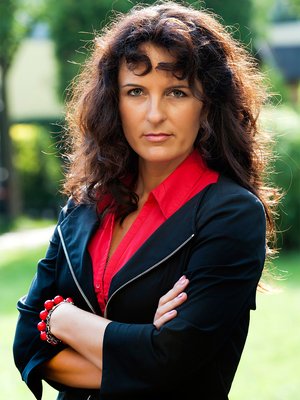
*Magdalena Parys - born in 1971 in Gdansk, has been living in Berlin since 1984. She studied pedagogy and Polish studies at Humboldt University, for a few years she has been a researcher in comparative studies. A writer, a poet, a translator, she writes in Polish and in German. She established ‘Squaws’, a literary magazine, and she has cooperated with major Polish dailies, weeklies and monthlies, including Gazeta Wyborcza. Her first novel, ‘Tunnel’ (2011), was distinguished with the ‘Złota Sowa’ (Gold Owl) award granted by the Polish diaspora. It was also nominated to the ‘Paszporty Polityki’ and ‘Angelus’ award – the Central Europe Prize for Literature.
‘Magician’ (2014), for which she received the EU Prize for Literature in 2015, is a 600-page novel which tells the story of an investigation conducted by journalists and the police in the case of Piotr Boszewski, an opposition member, who died in unexplained circumstances in Bulgaria in the 1980s. The story is based on facts – before 1989, a few thousand DDR residents tried to illegally cross the Bulgarian-Greek border, and many of them were shot.
15.07.2015

